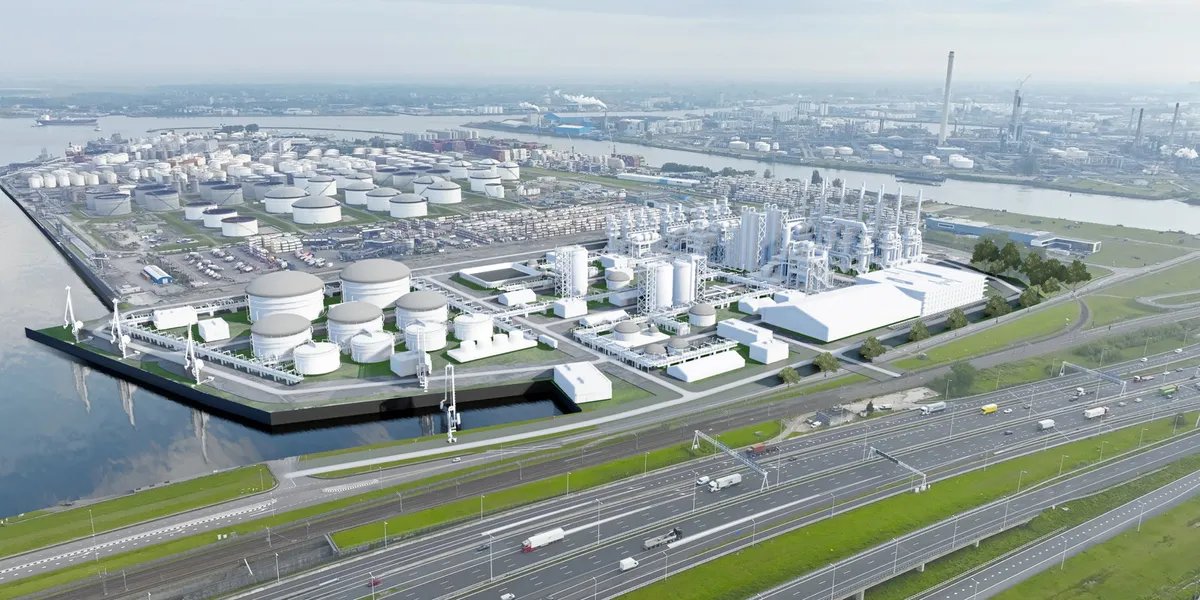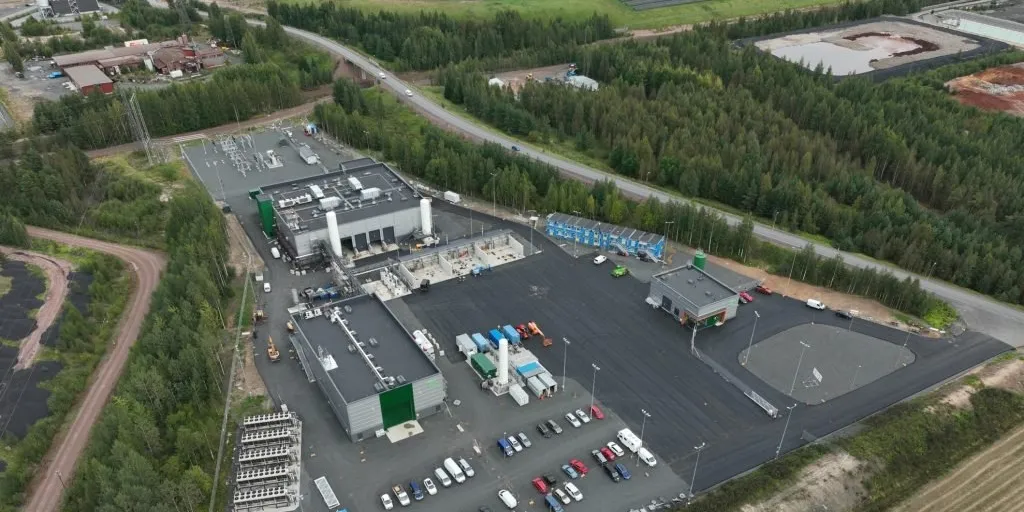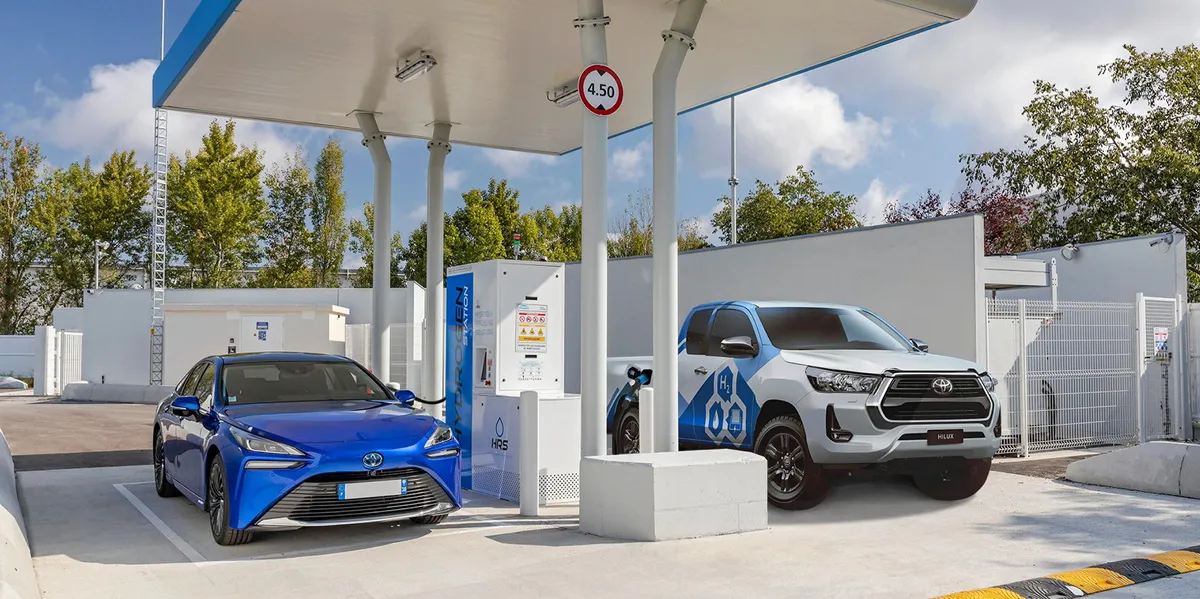
A project to produce more than 250,000 tonnes a year of sustainable aviation fuel in Rotterdam from green hydrogen-based methanol has been unveiled today by Dutch developer Power2X and Rotterdam-based storage tank operator Advario.
The EU mandates in its RefuelEU legislation that at least 1.2% of aviation fuel used in planes departing EU airports by 2030 must be made using renewable H2 that meets the definition set out by a Delegated Act.
As such, Power2X and Advario anticipate that their project will meet at least 40% of European demand for green hydrogen-based aviation fuels by 2030, although a firm date for a final investment decision on the €1.5bn ($1.6bn) facility has not been set.
The hub will be developed on a 26-hectare site at the Port of Rotterdam that Advario had acquired from Aluchemie in 2023, which is set to have any remaining structures fully demolished by the end of 2025 in order for Advario to begin construction on new facilities.
The e-fuels project, which would be sited close to existing hydrogen and CO2 pipelines, will not produce hydrogen or methanol on-site.
Instead, a spokesperson for Power2X confirms the facility will use 750,000 tonnes a year of both locally sourced and imported methanol, as long as it is made from hydrogen that meets the EU’s definition of renewable H2.
However, the developer did not comment on the likely split between sources from within and outside of Europe.
Similarly, the spokesperson for Power2X — which is backed by the Canada Pension Plan Investment Board — did not provide a specific figure for the premium for green hydrogen-based synthetic aviation fuels.
“Fuel costs typically make up 20-30% of overall airline ticket prices,” he noted. “Introducing a small percentage of eSAF into the fuel therefore has a relatively small impact on ticket prices (estimated a few percent at most).”
RefuelEU also sets a strict penalty for fuel suppliers and airlines that fail to meet the 1.2% target.
The specific scale of fines is expected to be set by the European Commission by 2027, although the regulation requires that these must be at least double the price difference between synthetic and conventional fuel, multiplied by each tonne of shortfall.
Despite this, a number of proposed synthetic aviation fuel projects have fallen through due to a lack of market development and high costs.
Last week, Uniper officially scrapped the 200MW SkyFuelH2 project in Sweden, while Orsted confirmed it had withdrawn from the Green Fuels for Denmark consortium.


